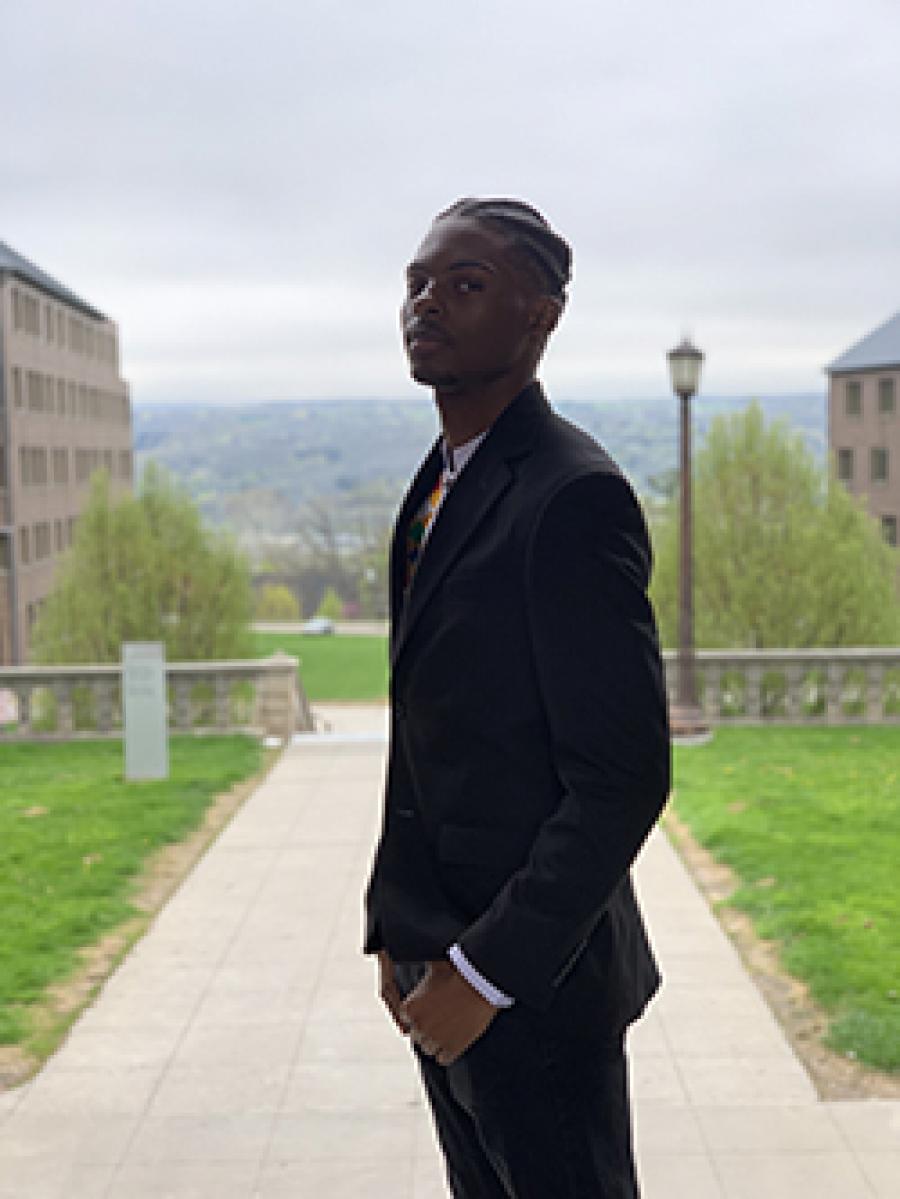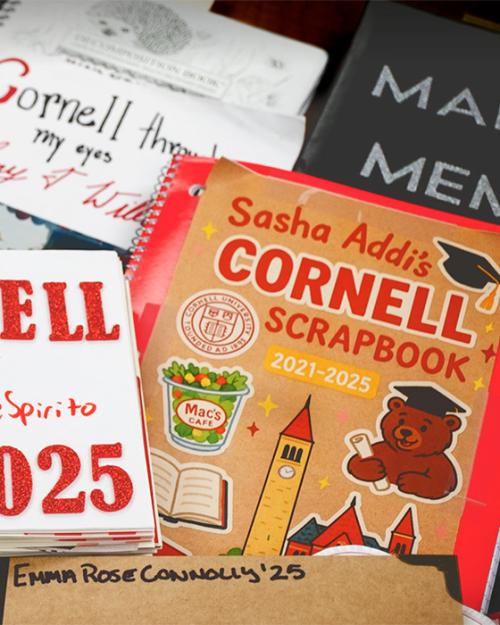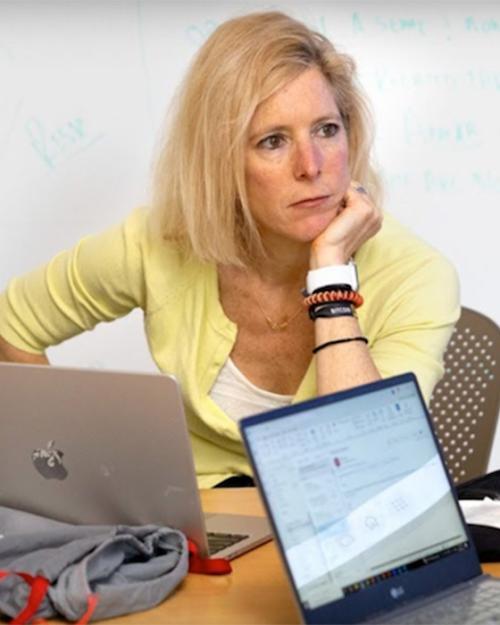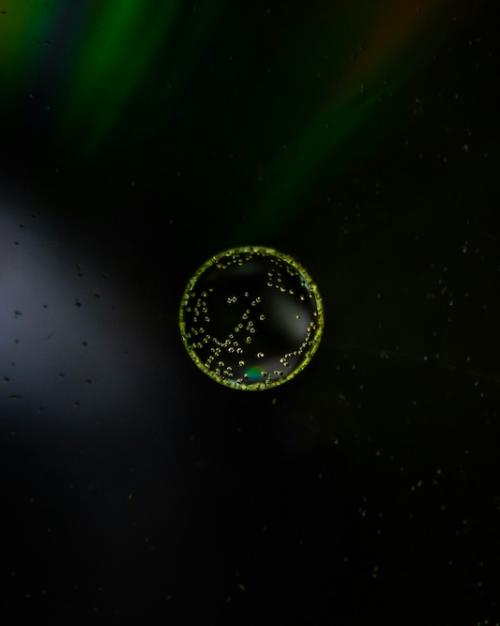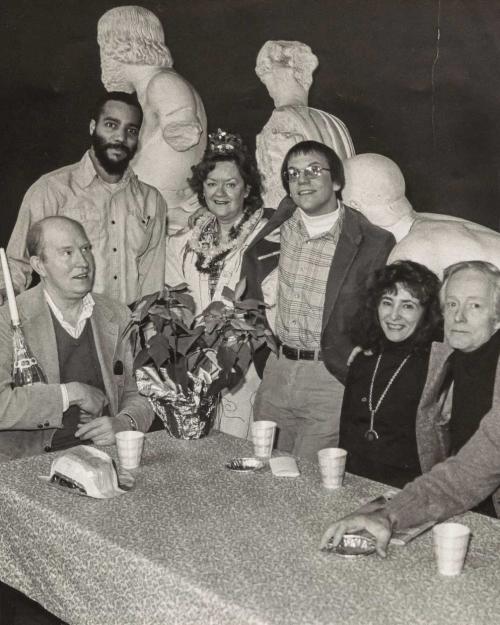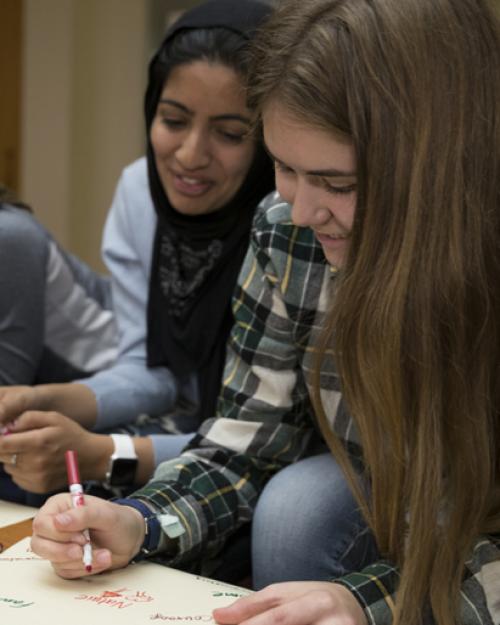When Ray Thompson ’21 was a freshman coming to Cornell from Alabama, he couldn’t wait to be in a quad with a bunch of roommates — he and his siblings all had their own rooms at home. But, Thompson ended up in a single room in Clara Dickson Hall and worried a bit about making friends.
Soon, he found that the dorm was a very social place, he said, and he made connections in other ways at well, including at his weekly advising seminar, where he met with a small group of nine other first-year students and their advisor, Bonnie Comella, the assistant dean and director of advising in the College of Arts & Sciences.
They discussed research possibilities, juggling classes and extracurriculars, deciding on a major, missing home and moving on.
“And sometimes Bonnie would just take us out to lunch so we could talk about things,” said Thompson, who is majoring in math with a concentration in computer science and is on the premed track. “It was a good connection builder with other students and with faculty across campus.”The advising seminars are one of a number of supports the College offers to first-year and first-generation students. Other programs include the College’s Summer Scholars Program, the Pathways Internship Program and the ongoing Prefreshman Summer Program.
Last fall, the advising seminars were expanded to include all students in the class of 2023 (except biology majors, who have a different advising structure). And students, and the more than 90 faculty involved in leading the seminars, say the weekly meetings have been helpful in easing the transition to college.
“The first semester of college can feel exciting and stimulating and scary – all at the same time,” Comella said. “The advising seminars give students a comfortable space in a small group setting to ask questions of their faculty advisor who cares about their well-being and who’s ready to help them adjust to Cornell.”
Advising staff surveyed students about their experiences and found an increase in student connection to faculty advisors as a result of the seminars:
- Twice as many students now say they feel comfortable seeking help from their faculty advisor, compared to those who responded favorably in past years.
- Twice as many students also said their advisor cared about them as a person, compared to when students were asked the same question before the seminar began.
- In comments, students said the seminar helped them “adapt to the rhythm of Cornell,” helped them meet people with different interests and took the stress out of the faculty-student relationship.
The seminars also include discussions about time management, campus academic and wellness resources, career development offerings and special academic programs like study abroad. Students also go on excursions with their faculty advisor, to campus destinations including the Kroch Library Rare and Manuscript Collections and the design and creative Makerspace in Mann Library. More informal activities might include a walk around Beebe Lake with their advisor – and sometimes the family dog - to appreciate the beautiful natural space that Cornell’s campus offers.
“I needed some guidance to navigate the big campus,” Thompson said. “I’m not one to go up and ask people what resources there are, and now that I’m a junior I’m using all of those resources.”
Peter Terrazas ’23 came to Cornell from Tucson, Ariz., knowing that he wanted to study astronomy, having some great experiences at the University of Arizona as a high school student. Before he came to Cornell, Terrazas was able to visit during diversity hosting month and took advantage of the Prefreshman Summer Program (PSP), too.
Even as a first-year student, Terrazas has had classes with Lisa Kaltenegger, associate professor of astronomy and director of the Carl Sagan Institute and Alexander Hayes, another associate professor of astronomy who is involved with numerous NASA projects. He’s also taken the opportunity to be involved in community outreach by working at Ithaca’s Sciencenter.
“I feel like I’m talking to celebrities when I’m with them,” he said. “They are enormous deals in the planetary science community.”
Terrazas said though he’s a STEM major, he’s also enjoying the freshman writing seminars (FWS), adding that he wrote about the Cornell motto — “any person, any study” — for his FWS about science fiction, arguing that, at the time, Erza Cornell’s idea was like science fiction, not something that people thought could be done.
“The thing I like about Arts & Sciences is that you can really try anything while pursuing what you’re interested in,” he said. “Every step along the way, Cornell was living up to its motto,” he said, adding that Juliette Corazón, one of the advising deans he met during PSP, and Roger Loring, his first-year seminar advisor and faculty advisor, have also been a huge help in his transition.
“I think back to things we would discuss in the seminar, such as to remember to think about my priorities and my ideas of success,” he said, “and how to get involved in undergraduate research.”
For Terrazas, the Prefreshman Summer Program was a vital introduction to campus. “You go into the fall semester and already have a good support group through PSP,” he said, adding that staff in the Office of Academic Diversity Initiatives have also been available to talk with him whenever he needs them, as has Corazón.
“We’re just getting out of high school and we still feel like kids,” he said. “We sometimes need these adult figures who understand what we’re going through.”
